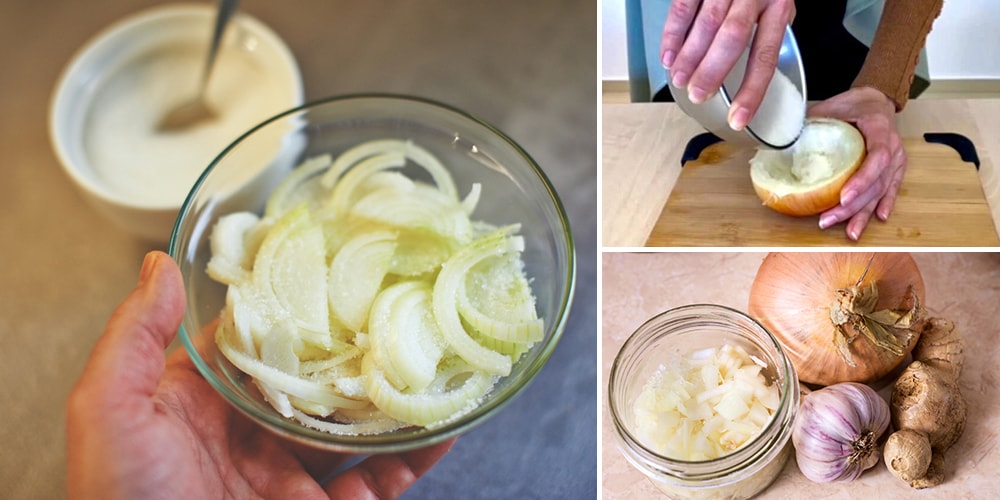
What Happens When You Pour Sugar Into An Onion?
Onion is a staple food and herbal medicine that is popular throughout the world. When used in dishes, it gives depth to foods and enhances their taste despite its pungent aroma.
The onion bulb is prepared and consumed in many different ways. Recognized as an herbal remedy, onion may be taken raw or as powder or juice. But its strong spicy flavor is sometimes unlikeable, so much so that children and some adults hate it.
Mixing onion with sugar mitigates its taste and produces a more desirable syrup. Sugar also draws out more liquid and essential minerals from onions for a more powerful home remedy. Sugar-infused onion works like over-the-counter cough medicines, only more natural and without the added chemicals. Plus, it is simple and cheap to make, with only two ingredients and a little bit of patience.
Health Benefits of Onions
Onions are known for their irritating effect on the eyes when chopping. And if you are wondering why, it is simply because of the interaction of the enzyme alliinase with the sulfur compound alliin when the onion tissue is damaged. The action generates sulfenic acid that triggers the inflammation of the tear glands. It is the reason why you cry every time you chop raw onions. But the effect is generally short-term and lasts for about a few seconds.
Onions are extensively used for both culinary and medicinal purposes. This bulbous plant is packed with curative properties. It is known for its magnetic powers that attract harmful bacteria, viruses and toxins, and draw them out of the body. Onion is exceptionally effective for the following ailments:
Anemia
Anemia is a condition where the body lacks healthy red blood cells to facilitate better oxygen transport. It is due to a deficiency in iron, vitamin B12 and other minerals that the body needs to make enough red blood cells. But, some of these minerals naturally occur in onions. That is why this herb can help boost the hemoglobin in the blood.
What makes onion more valuable for anemia is its high vitamin C and cysteine content. Vitamin C is known not only in improving immune health but also in increasing iron absorption. Cysteine is a sulfur-containing amino acid that increases the Bioaccessibility of iron, folate and zinc. Consuming onion with a proper diet increases the uptake of iron by up to 70 percent.
Cancer Prevention
The high level of phenolic acid and flavonoids in onion inhibits oxidative cellular damage. Its antioxidant properties remove toxins and free radicals to prevent cancer. Onion consumption may reduce the risk of several types of cancers like breast, prostate, stomach and colon cancer.
Diabetes
Quercetin and the sulfur compounds in onion have an effective antidiabetic effect. These compounds interact with the cells in the small intestine, pancreas, liver and skeletal muscle to manage whole-body blood sugar production. Eating raw onions can significantly reduce blood sugar, cholesterol and triglycerides. These reductions are beneficial in diabetes and prediabetes conditions.
Oral Problems
One of the disadvantages of eating onion is its notoriety for causing bad breath. Conversely, onion also holds great potential in treating oral problems like mouth sores, tooth decay, gingivitis and oral infections. Its antibacterial and antifungal property is highly effective in combating germs in the throat and oral areas.
Low Libido
Onions are aphrodisiacs, which means that it is a food that stimulates sex drive. In a study conducted in rats, fresh onion juice has the ability to increase testosterone levels.
Hair Growth
The antioxidants and flavonoids found in onion stimulate the scalp to promote healthy hair growth. Its sulfur content boosts collagen production and improves hair’s elasticity. That is why onion is one of the widely-used home remedies for hair loss, dandruff, baldness and other scalp problems.
Heart Ailments
Incorporating onion into your daily diet reduces the risk of stroke and heart disease. Onion works as an anticoagulant or blood thinner that prevents blood clots and blockages. Its antioxidants and compounds also decrease cholesterol levels. Thus, onion is considered an effective home remedy for managing blood pressure levels and decreasing heart risk factors.
⇒ Eat These 10 Foods For 7 Days Straight To Manage Chronic Pain (Video)
Cough
Cough is a commonly occurring problem that everyone could expect to experience every year. It varies in severity – from a simple cough to the painful and chronic one. Cough may arise from exposure to allergens, common colds and infections, heartburn, and other causes that lead to airway obstruction.
A wide array of herbs can be used to treat cough but onion is perhaps the most conveniently available in every pantry. Onion contains sulfur compounds like allicin which thins the mucus for easy expulsion in cases of dry cough. It also cures irritation and eases the symptoms of sore throat.
Sugar And Onion Cough Syrup
If you want a natural remedy, there are plenty of herbs that effectively work against cough. When properly managed, a cough is always easy to clear away.
When you pour sugar over onions, you can have this amazing cough syrup.
You will need:
- A glass jar
- Onion, chopped
- 3 tbsp white sugar

Steps:
- Chop enough onion to fill the jar.

- Place the onion in the jar.

- Add approximately 3 tablespoons of sugar.

- Mix the onion and sugar well.
- Leave the jar at room temperature for about 6 to 8 hours.

How To Use
Take a spoonful of onion syrup to treat coughs and colds.
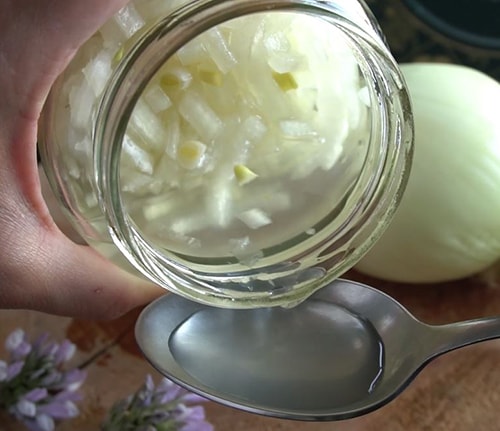
Storage: It can stay for up to 48 hours in the refrigerator. After that, discard the mixture and prepare a fresh one if needed.
Do not take the onion syrup excessively since it may trigger heartburn that may worsen the cough. If you have diabetes, take onion in other forms, without sugar.
Takeaway
The medicinal properties of onion are better utilized in its raw and juice form. Chop its bulb and consume it in a salad or extract its juice and drink it to relieve health concerns. It is safe for consumption in pregnant and breastfeeding women but only in amounts found in food. The onion should also be taken moderately as excessive use can irritate the gastrointestinal tract. It can worsen the problem in people with irritable bowel syndrome (IBS). Furthermore, do not consume onion if you are taking medication for diabetes. The herb is so powerful that it can lower blood sugar to a potentially dangerous level called hypoglycemia.
Onion syrup is a traditional household remedy that has anti-inflammatory, antibacterial, antiviral and analgesic effects. Onion syrup is a handy home medicine for coughs and colds. It helps treat tonsillitis, pharyngitis and laryngitis, as well as sinusitis. Not only is it effective, but it tastes so good that, unlike store-bought cough medicine, kids actually enjoy taking it!

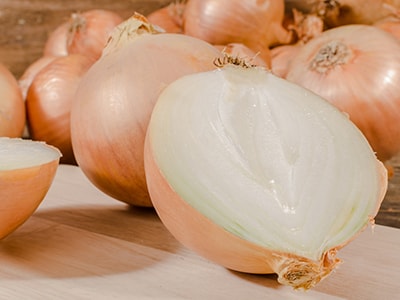
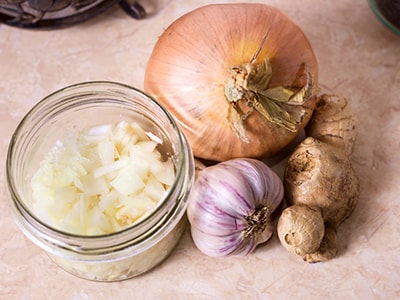


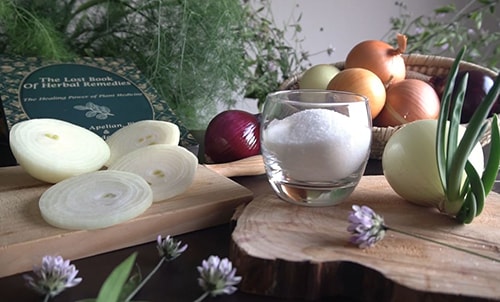
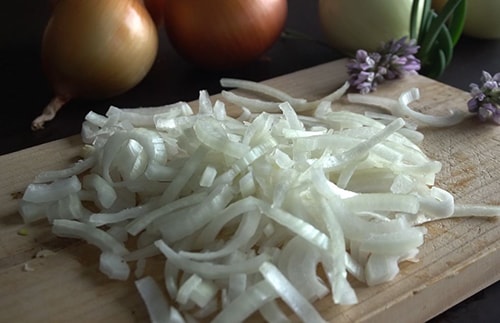
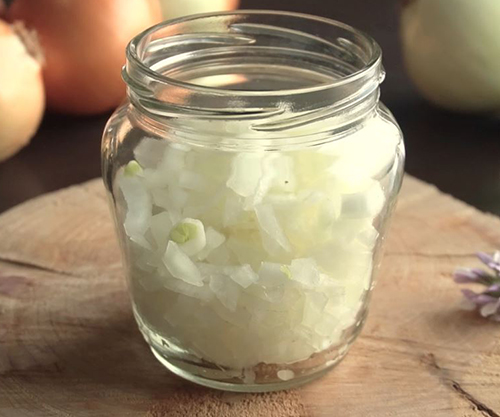
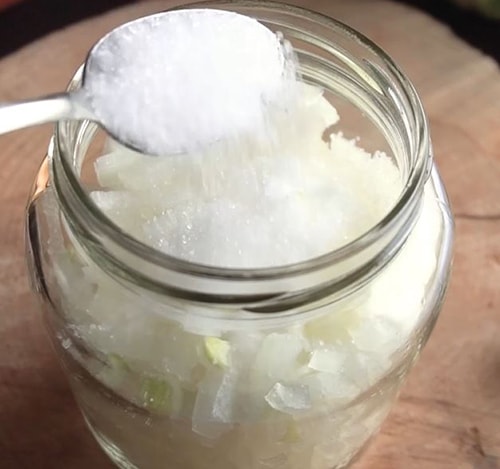
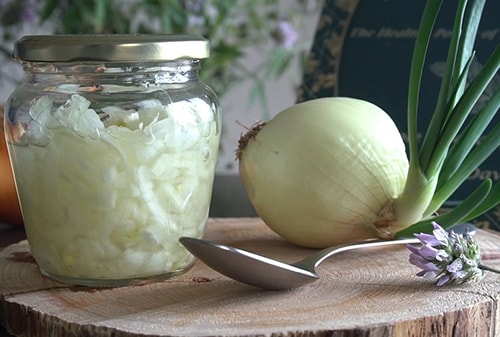
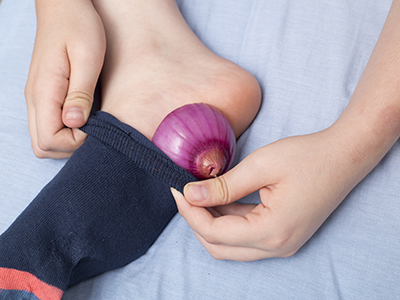



Thank you so much for the information! Just curious, would honey be an effective substitute, or does it need to be sugar?
honey is very good, indeed !!
What if you are diabetic and can’t have refined sugar
Just use honey and monitor your sugar levels – I’m diabetic and the incredible effect of this on a cough alone is well worth a little extra effort of monitoring but the sugar content 2 teaspoons per hour is negligible 🙂
How about using wild honey instead of sugar will it work the same?
Hi Alice,
Yes, you can use wild honey instead. If you have diabetes, it’s usually safe to eat honey but not a lot of it. You need to carefully monitor how much you take in.
Many blessings and good health!
Honey is not a safe substitute for sugar if you are diabetic. Both raise the blood sugar levels which can be dangerous to diabetics. Consult your doctor if you disagree.
We use raw organic honey instead of the sugar.
Hi Fiona,
Thank you for sharing! Honey is indeed a good replacement.
Many blessings and good health!
How often is this 1 tsp taken for a moderate cough?
Thanks!
Hi Faris,
Thank you for your comment. You can have one or two spoonfuls of syrup, taken 3 or 4 times a day.
Many blessings and good health!
Thank you Ann you are a Godsend. Has anyone successfully used this with xylitol? (birch bark)
Note- I just wish my wife was more like you and was’nt so ‘conventional’ on what medications she chose to put inside her body. You probably know where I am going with this, although I will not say that C word due to censorship, and by the way I was not refering to the four letter C word, which I now use as a prefix to it since she recently passed.
Thank you again Ann for pushing the blind to be knowledgeable on the healthy medicinals which were once inherited from their kin.
Do you know if this should be taken on an empty stomach or with food? I took some this morning on an empty stomach but threw it up a few minutes later. Not sure why. Any ideas?